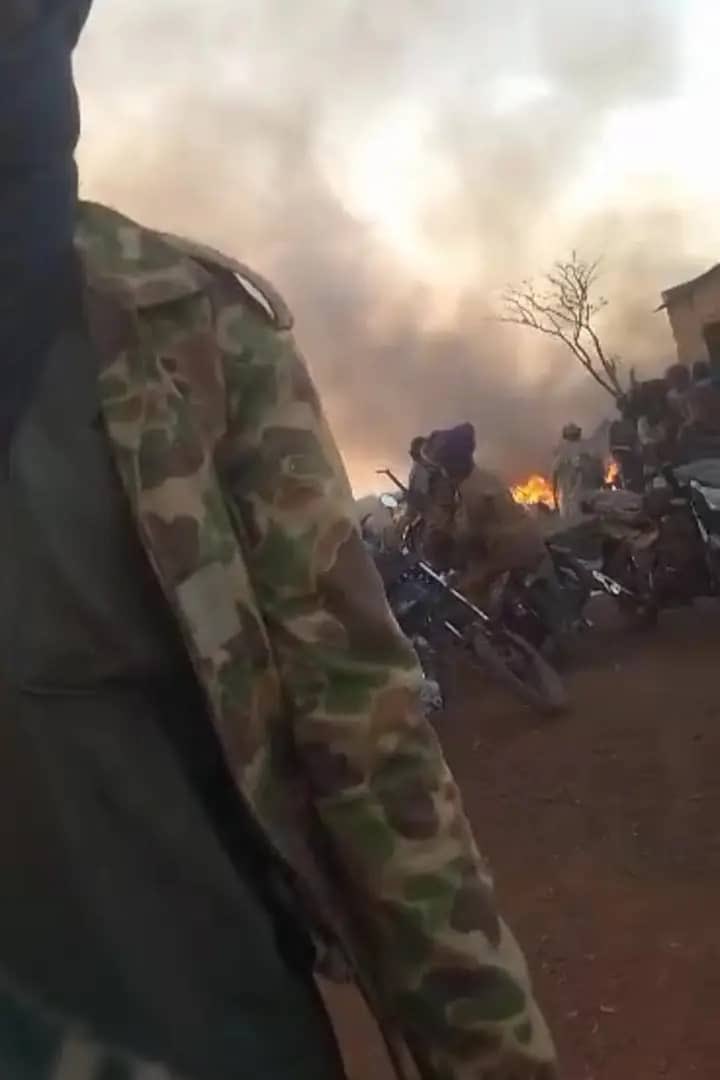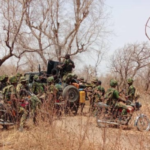The Sahel region of Africa, once a land of relative stability, is now at the mercy of an escalating wave of extremist violence that threatens to destabilize not only the region but also global peace and security.
The ongoing crisis is not merely a problem of territorial disputes or insurgency; it is a deepening conflict that risks toppling governments, destroying livelihoods, and triggering an uncontrollable wave of violence across multiple borders.
As we stand at the precipice of a security disaster, the situation is dire. Burkina Faso, Mali, Niger, and even the broader Sahel region are on the brink of collapse under the weight of extremist groups such as JNIM (Group for the Support of Islam and Muslims), IS Sahel, and separatist movements like Azawad.
While much of the international community has focused on the symptoms of this chaos, the deeper causes remain ignored or misunderstood often for political gain rather than true policy solutions.
In Burkina Faso, about 60% of the territory has already fallen under extremist control, leaving the government unable to effectively secure its borders, maintain law and order, or protect civilians. The same pattern of deterioration has infected Mali, where the insurrection from the Azawad separatists combined with jihadist incursions is crippling the central government’s authority.
Niger, once a relatively stable neighbor, is slipping into the same abyss. Particularly worrying is the Three-Borders-Zone of Tillaberi, which has become a hotspot of violence from both JNIM and IS Sahel. In early April 2025, the Katanga area of Tillaberi was attacked, with six civilians killed during the raid.
The government’s response has been weak, focusing on trivial matters like adopting Hausa as an official language instead of addressing the growing threat at their doorstep.
Niger, the epicenter of this chaos, is already facing catastrophic losses, with approximately 80% of attacks concentrated in this country alone. The first quarter of 2024 saw nearly 179 reported deaths, but the real toll is likely far higher. The government has failed to make significant progress in curbing extremist movements, relying on an ill-equipped and demoralized military, with conscripted civilians often forced to fight without adequate support.
Meanwhile, foreign mercenaries like the Wagner Group have been deployed to “assist” in security operations but remain insufficient and ill-prepared to combat the sophisticated and organized forces of JNIM and IS Sahel.
The future is more alarming. There is a real possibility that these extremist groups could attempt to march on the capital cities of Ouagadougou, Bamako, and Niamey—not necessarily to overthrow the governments but to trigger uprisings, countercoups, and further instability.
The aim is clear: destabilize the region as a whole, weaken local governance, and increase recruitment for their cause. In many ways, the extremists are playing a long game disrupting governments, sowing discord, and eroding the support base for regional stability.
In this complex landscape, Nigeria’s role as a regional leader is critical but insufficient. While Nigeria has been active in promoting regional peace and cooperation, diplomatic efforts have faltered. The threat from the Sahel is already spilling over into Nigeria’s northeastern, northwestern, central, and southwestern regions.
The proliferation of foreign presence and growing terrorist activity further complicates the situation. Despite these mounting challenges, the diplomatic response remains incoherent, with regional actors often acting out of self-interest or short-term political gains rather than genuine collaboration.



